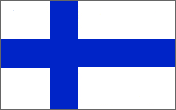French English du of the de l’ of the de la of the des of the au to the / at the à l’ to the / at the à la to the / at the aux to the / at the French has multiple options because it has 2 genders for nouns “the chair” = “la chaise” (female), “the bench” = “le banc” (male), and it changes the article when you’re talking about multiple things vs. single things “the benches” = “les bancs”.
So, French really has 3 versions of “the”: “le” (male, singular), “la” (female, singular), “les” (female or male, singular).
But German… ugh. There’s a 4x4 matrix of German words for “the”. German had the wisdom to come up with a neuter gender, but the insanity to not apply it to most common objects. Somehow a knife is sexless, a spoon is male and a fork is female. Making it worse, the version of “the” you use for an object depends on whether the object is the subject of a sentence, the object of a sentence, the indirect object of a sentence or possessive. I don’t know if it’s better or worse (but I’m leaning towards worse) that they re-use a lot of these articles at other spots in the matrix, so “der” is used for male objects in the nominative case, female in the dative case, and plural objects in the genitive case.
Case Masculine Feminine Neuter Plural nominative der die das die accusative den die das die dative dem der dem den genitive des der des der Take “Stein” which is stone, not beer glass. If you’re an English speaker and are used to adding an “s” to make something plural, and you see “Der Stein” and “Des Steines”, you might think that the version with the “es” is the plural, right? Nope, the plural of “Der Stein” is “Die Steine”. “Des Steins” is for the possessive case. You’d use “Der Stein” for “The stone is heavy”, but if you want to say “The weight of the stone is high” you have to switch to “Des Steins” – and to add another twist, sometimes it’s “Steines” because of reasons.
*(female or male, plural)
Your matrix is correct, op errored on the neutral branch with “den”.
Any time I use the wrong definite article my German wife will loudly bark “NEIN!” It’s hot but educational.
Hey, is your wife free later? I could really use some German lessons. I mean German less- I mean German- I mean Ger- I-I-I mean light domming.
I don’t even know a correct way to translate ‘the’ to my language, it doesn’t really exist
I’m trilingual and two of the languages don’t even have this bs lol (Mandarin, Japanese, English).
Recently I went on Wikictionary by curiosity to see how a Japanese world was constructed and Japanese looked extremely powerful but insanely complex.
You can properly express so much in this language
I’m learning japanese right now, it has a very Lego-like structure for creating words and sentences that allows you to be very specific about things which is pretty cool.
Homophones are waaaaay more common in Japanese than in English though.
If you wanna blow your mind even more, look into hungarian, finnish, turkish or georgian. These are some very agglutinative languages, much more than japanese. If i was you i would skip hungarian and georgian tho because the grammar is unhinged but for what they are finnish and especially turkish are pretty nice.
You can express just about everything in any language. It just sometimes takes more words.
I’m not sure any of those french phrases ever translate to “the”
You’re right, they don’t.
The ones beginning with “d” generally translate as “of the,” while the “à” ones generally translate as “to the” or “at the.”
French has three words that mean “the”: “le” (masculine), “la” (feminine), and “les” (plural).
Right yeah I know. I was just allowing for some potential context I wasn’t aware of
I can see now why English is seen as more universal, even if in an alternate timeline where the Anglophones never became dominant.
In Norwegian (or rest of scandinavistan, as far as I know) we don’t even use “the”. Suffixes are used instead.
Fish = Fisk
The fish (single) = Fisken
The fish (plural) = FiskeneSo, is there no differentiation between “a fish” and “the fish”?
A fish - en fisk
The fish - fiskenEnglish would be a lot more fun if they did the same as us.
A fish
Fisha
A man
Mana
A book
Booka.
Sounds like Final Fantasy potions/spells
this is a relly gard thing to understand for natives of languagea without articles, “some fish” vs “this particular fish”
Proud lad from Jutland here: in our dialect we do use “the” in “æ”.
The fish = æ fisk
Russian:
Yorkshire:
T’ (Glottal stop sound)Der, die, das 👏👏…
Wer, wie, was👏👏
Wieso, weshalb, warum? 👏👏
Wer nicht fragt, bleibt dumm!
1000 tolle Sachen
Die gibt es überall zu sehen
Manchmal muss man fragen
Um sie zu verstehen


Edit: Shit, I mistook the original meme as about grammatical cases instead of articles. I think Finnish has 15 cases. 🤔🫣
Wait i thought finnish didnt have articles? I dont know that much about it, im just hungarian(same language family) and also live in sweden which is of course next to finland. In hungarian there are articles tho(the grammar is extremely strange around them, we literally conjugate for them) but i heard finnish doesnt have them.
Wait i thought finnish didnt have articles?
Journalism exists in Finland too.
Yeah we don’t.
deleted by creator
Me speaking a language which uses quotes instead of the

That kid is about to ruin someone’s microwave lunch.
More like: by the, of the, for the, to the, belonging to the etc.
Yeah I was gonna say, those aren’t the same at all. English has way more prepositions than French.
You guys have articles?
Norwegian: -en, -a, -et (suffixes)
But also -o, -i and probably other variations depending on location.
O and I? In swedish we only have en and ett and norwegian has a third one but what the hell are o and i? Im not very good with swedish yet(im an immigrant) but could you explain what o and i do? I dont think swedish has this tho.
They are dialects, mostly. In parts of western norway, -o is used for singular feminine words, for example: “stuo” (instead of “stua” (“the living room”)). Similarly, -i is used in parts of central Norway, for example: “boki” (instead of “boka” (“the book”)). I’m not sure if these are accepted in “correct” written form of nynorsk, but it is commonly used in spoken and written dialects.
Swedish cottage: Stuga, Stugan, Stugor, Stugorna, Stugans, Stugornas
Huh, I was not aware that “stuga” is swedish for “cottage”. In norwegian, cottage would be: Hytte, hytta/hytto/hytti, hytter, hyttene. I could include genitive as well, but it’s just adding an -s to each form.
In Swedish, (apparently) Hytta is a house with a Furnace, like a forge.
Paired with or used as pronouns: Den, De, Dem, Dens, Dess.















